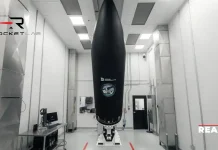Sidus Space, a multi-faceted Space and Defense-as-a-Service satellite company, announced it has partnered with Lulav Space, a robotics company specializing in space applications, to research, develop and demonstrate the benefits of Event-based Star Trackers (EBST). Sidus plans to include the Lulav/Sidus EBST on its fourth planned LizzieSat mission, currently scheduled to launch with SpaceX in June of next year. This contract is part of the previously announced Space Florida award under the Florida-Israel Innovation Partnership.
“An EBST can provide more accurate information on the orientation of satellites with high angular spin rate, such as our innovative, AI driven, 3D-printed LizzieSat. This technology will be particularly valuable in our emerging LizzieSat constellation as we build out our high-margin, recurring revenue, data-as-a-service business model,” said Carol Craig, Founder and CEO of Sidus Space. “We believe our collaboration with Lulav Space will fill an important knowledge gap in developing this technology, and we look forward to working with Lulav on this valuable project.”
Also Read: Textron Aviation Delivers the First Flagship Cessna Citation Longitude Registered in Mexico
In addition to their lower size, weight and power (low SWaP), event-based cameras have been widely recognized to have exceptional performance at high angular rates compared to traditional camera sensors. Star Trackers capture and analyze star images to accurately determine satellite orientation in space; however, utilizing traditional camera sensors, they can only operate at low angular rates, limiting satellite performance and robustness. This project will combine Lulav’s expertise in vision-based space applications with Sidus’ satellite development, deployment, and operations expertise, to develop and test in-orbit the first commercial EBST, a star tracker utilizing an event-based camera.
SOURCE: BusinessWire




